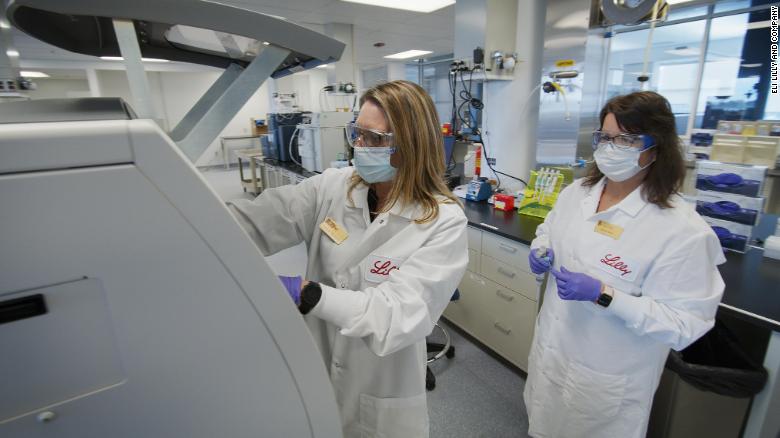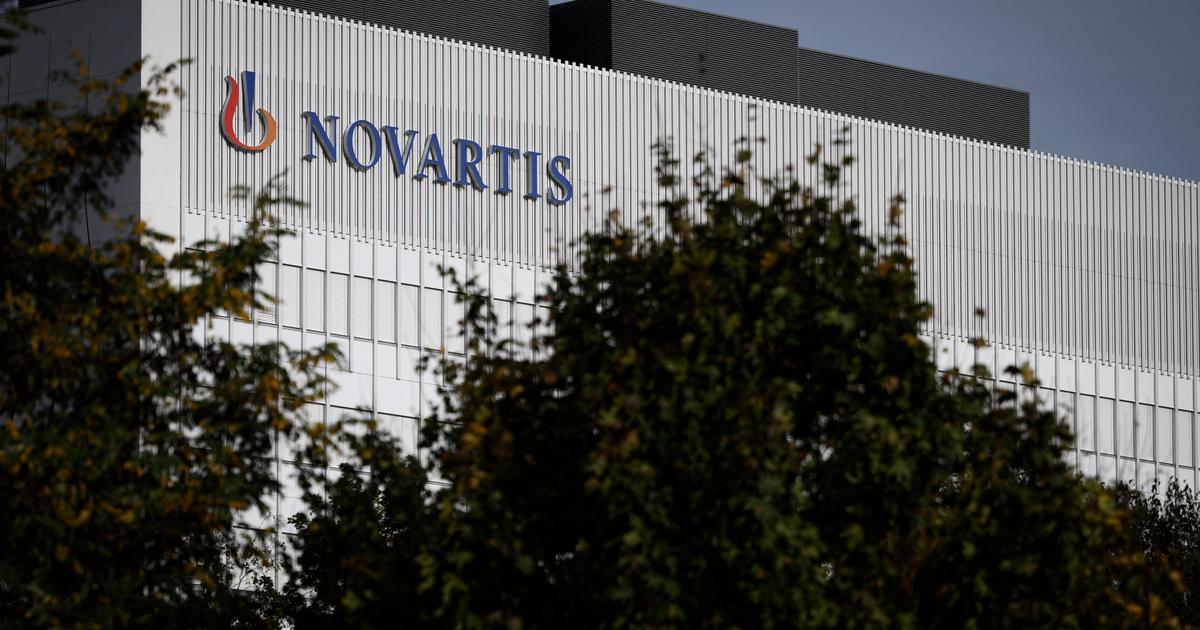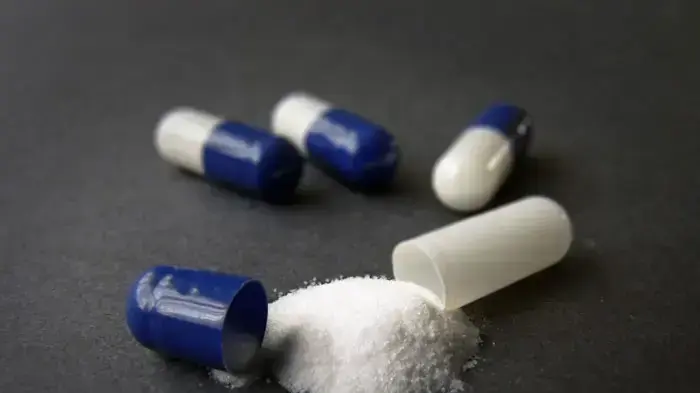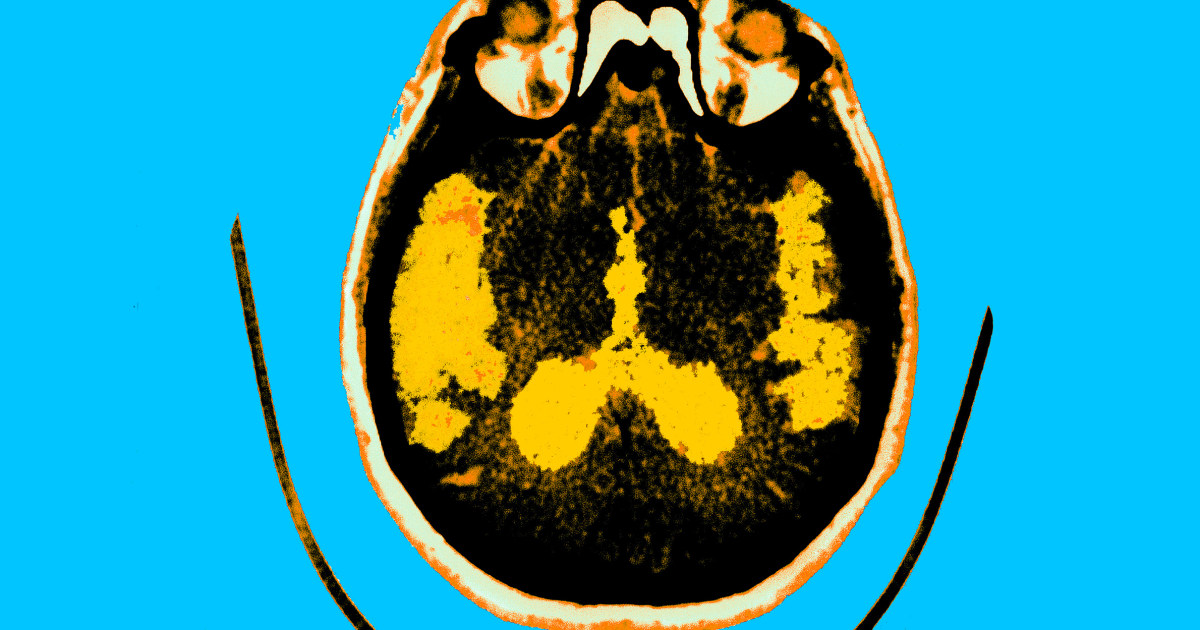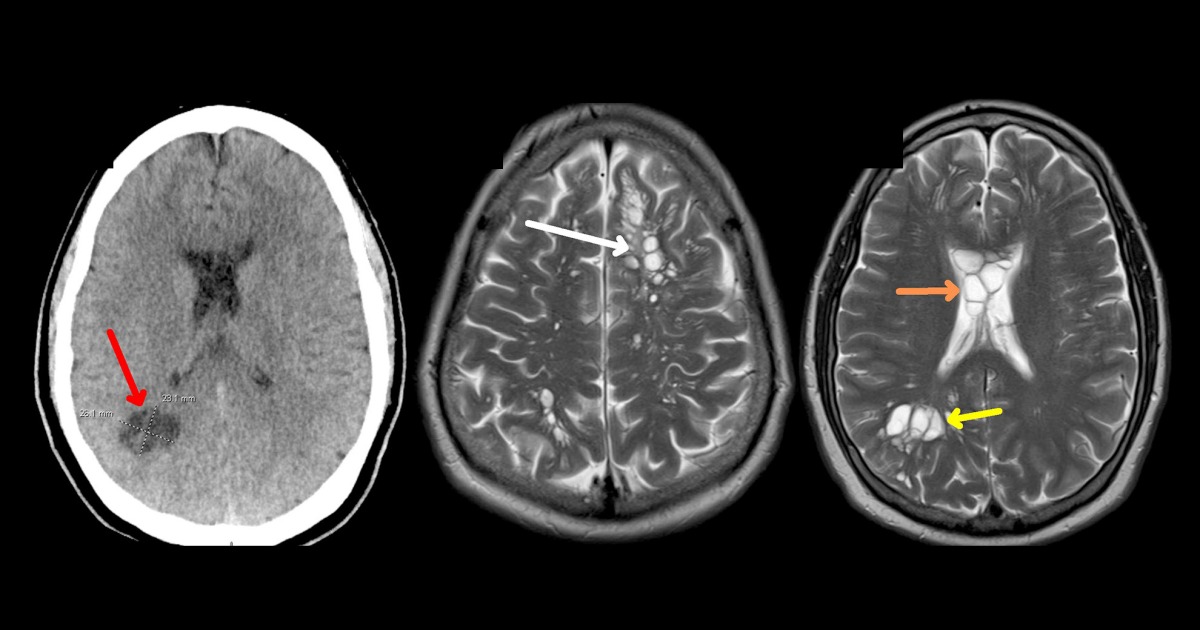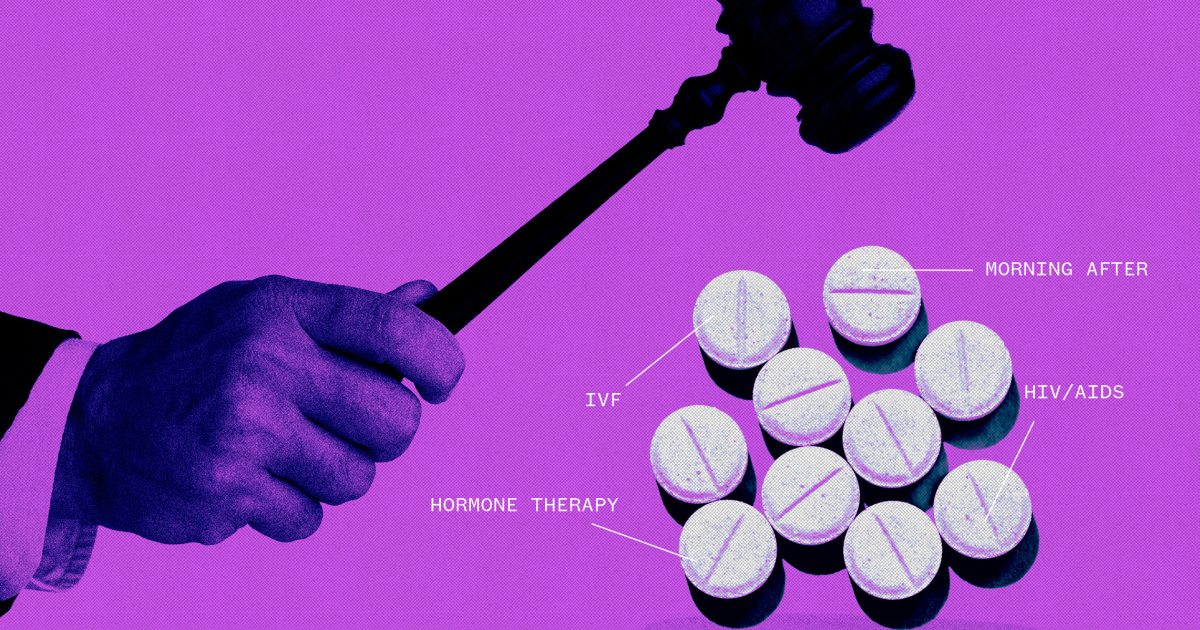What are the monoclonal antibodies Trump received?
33:23
(CNN) -
The U.S. Food and Drug Administration (FDA) said Monday it had issued an emergency use authorization for Eli Lilly and Co's monoclonal antibody therapy to treat infections. mild to moderate coronavirus in adults and children.
The single antibody treatment, called bamlanivimab, must be given in a hospital or other healthcare setting.
It is the first monoclonal antibody authorized for use in the treatment of coronavirus.
The idea is to launch an immune response against the infection.
'Monoclonal antibodies are proteins made in the laboratory that mimic the immune system's ability to fight harmful antigens such as viruses.
Bamlanivimab is a monoclonal antibody that specifically targets the SARS-CoV-2 spike protein, designed to block virus attachment and entry into human cells, "the FDA said in a statement.
Pfizer announces that its vaccine against covid-19 is 90% effective, but two studies are still missing
"The FDA emergency clearance of bamlanivimab provides healthcare professionals on the front lines of this pandemic another potential tool in the treatment of patients with COVID-19," said Dr. Patrizia Cavazzoni, Acting Director of the Center for FDA Drug Evaluation and Investigation, in the statement.
"We will continue to evaluate new data on the safety and efficacy of bamlanivimab as they become available."
FDA clearance
The FDA clearance was based on a study published in the New England Journal of Medicine in October.
It found that the treatment appeared to reduce the risk of hospitalization and alleviate some symptoms in a small number of patients with mild to moderate cases of Covid-19.
The phase 2 trial involved 452 patients.
Some received the treatment and others a placebo, which does nothing.
Only 1.6% of the patients who received the treatment had symptoms that progressed enough to be hospitalized or seek emergency room care.
For patients who received the placebo, the hospitalization rate was 6.3%.
advertising
Lilly announced that it had reached a $ 375 million agreement with the government for 300,000 vials of the antibody treatment, pending emergency authorization, to be delivered within two months.
Lilly applied for the emergency clearance in October.
The company said it planned to have 100,000 doses ready to ship in a few days and would manufacture one million doses by the end of 2020. The treatment would be provided to patients at no cost.
"Lilly will begin shipping bamlanivimab immediately to AmerisourceBergen, a national distributor, which will place it as directed by the US government allocation schedule," the company said in a statement.
What is emergency authorization?
"Issuance of an emergency authorization is different from FDA approval," the agency noted.
"Based on the FDA's review of all available scientific evidence, the agency determined that it is reasonable to believe that bamlanivimab may be effective in treating out-of-hospital patients with mild to moderate COVID-19," said the FDA.
“And, when used to treat COVID-19 for the licensed population, the known and potential benefits outweigh the known and potential risks of the drug.
There are no suitable, approved and available alternative treatments to bamlanivimab for the licensed population. '
Treatment should be given as soon as possible after a positive COVID-19 test result, within 10 days of symptoms onset, the FDA said.
It can only be given in a healthcare setting where doctors also have access to medications in case the patient has a bad reaction to the infusion.
Providers using the treatment must also report to the FDA if there are any serious adverse events, the emergency authorization says.
The treatment is not authorized for patients who are hospitalized or require oxygen therapy, as it does not appear to help them.
Monoclonal antibodies
For months, hope has been building around monoclonal antibody therapies as a potential treatment for COVID-19.
Eli Lilly pauses a monoclonal antibody assay to treat coronavirus for safety reasons
As soon as the pandemic hit the United States in January, Lilly scientists got to work identifying an antibody, one of the proteins the body makes to naturally fight infection, that would better protect against the new coronavirus.
Scientists examined thousands of antibodies generated by a patient who had recovered from COVID-19.
They found, selected and then copied those they thought would best neutralize the virus and chose one for a cutting-edge treatment that entered human clinical trials in June.
Regeneron has also applied for an emergency use authorization for his antibody therapy.
That's the one that was given to the President of the United States, Donald Trump, last month when he contracted the coronavirus.
There are 79 antibody therapies under investigation.
"The authorization of this new antibody treatment from Eli Lilly is a significant step forward in the treatment of patients and leads us to the implementation of safe and effective vaccines, with all these efforts made possible thanks to Operation Warp Speed," he said in a communicated the Secretary of Health and Human Services, Alex Azar.
"Operation Warp Speed helps ensure that therapies like Lilly's can reach patients without wasting a day."
Lilly is also testing bamlanivimab in combination with another monoclonal it has developed.
A peer-reviewed study in August showed that Regeneron's "cocktail" approach using two antibodies with his treatment worked in the lab even when the new coronavirus mutated.
Antibodies

